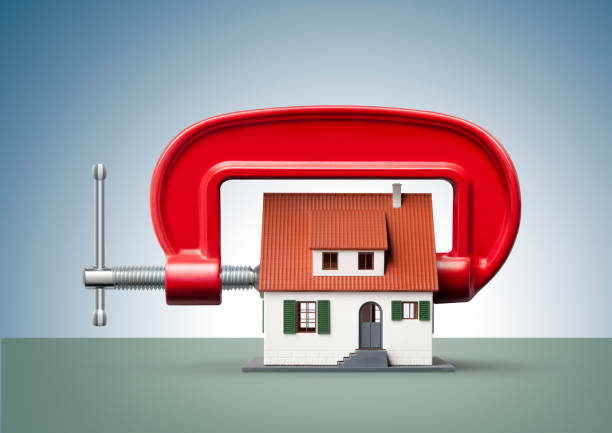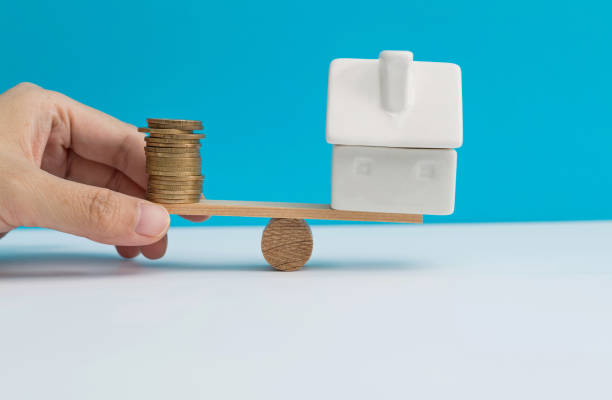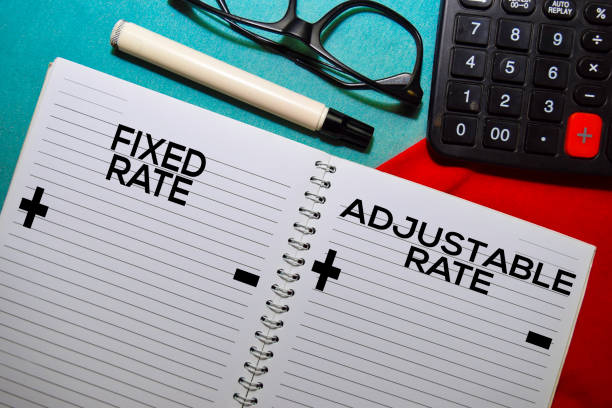So, what is a fixed-rate mortgage? Any time you’re looking to purchase a new home or refinance your home, it’s important to know all of your options so that you can make the decision that’s right for you.
Having a clear overview of your financial choices is important. It’s the best way to set yourself up for the future and save money. We’re going to discuss the option of a fixed-interest rate mortgage. In this article, we will provide insight into what it is and what kind of advantages it provides.
Hopefully, the information below can give you some direction on how to move forward with getting a mortgage.
Let’s get started.
What is a Fixed Rate Mortgage?
Any mortgage you take out will have an amount of interest that accrues over the life of the loan. This adds value to the amount of money that you have to pay back. It’s how lenders make money off of their investment in you.
The interest rate you receive on a loan depends on a number of things. Your financial history, credit score, income, and preferences of the lender will all factor into the interest rate on your mortgage. Generally, with a clean track record and a great credit score, your interest rate will be lower.
Different lenders offer different options. No two lenders are the same. The rates, terms, and how much interest will accrue over the life of your loan depend on the lender who approves you.
Fixed-rate and variable-rate mortgages are amongst the two most popular mortgage types.
A fixed-rate mortgage will present you with an interest rate right off the bat. And, that rate won’t change over the entirety of your loan.
Adjustable-rate mortgages fluctuate, depending on the bank of Canada’s prime rate.

Fixed-Rate Mortage Payments
Just because your interest rate doesn’t change over time, your principal payment will change, sometimes from month to month. Additionally, the amount of interest that’s added will vary as your principal changes. So, just because the interest rate is fixed doesn’t mean that the amount of interest that accrues will be the same at each interval.
If you’re paying regularly, though, the good thing is that the interest accrued will be less and less per period over the life of the loan. Fixed-rate loans are very predictable.
The nice thing about a fixed-rate mortgage is that the payments stay the same. They do not change from month to month, even though the variables in the payment are adjusting slightly.
In many cases, the principal payment goes up as the total amount of the remaining principal goes down. It does this in a way that complements the lower interest payment each month to equal what your original payment was.
Fixed-Rate Advantages
The primary advantage of this kind of mortgage is that the borrower is shielded from sudden changes in the market that cause interest rates to skyrocket. Your payments will remain on track regardless of how interest rates rise.

As we’ve all experienced in the past year, economic shifts can have extreme consequences on average people, especially when they’re tied to things like loans and mortgages.
So, having the assurance that your payments aren’t going to rise significantly from month to month is an excellent way to ensure that you can keep your payments on time and avoid losing your home.
Additionally, the rate that you’ll pay always depends on the length of the mortgage. Commonly, people choose between a 15, 20, and 30–year fixed-rate mortgage. This refers to the amortization of the mortgage and likely how long you’ll be paying your mortgage. While there are ways to accelerate how fast you pay off your mortgage, we are going to stick with the basics for now.
The longer amortization is, the lower your payments will be. It’s important to note that the longer the amortization, the more you’ll also pay in interest. At the same time, that lifespan gives the interest more time to accumulate, leaving you with a larger expense over the life of the loan.
What About Adjustable Rate Mortgages?
Adjustable-rate mortgages (ARMs) differ from fixed-rate ones in the way that the interest rate shifts. The interest rate of an ARM is liable to shift based on the market and may be lower or higher each term.
Historically, adjustable-rate mortgages have outperformed fixed-rate mortgages. But when you factor in that there are no guarantees, quite often many people elect to go with fixed mortgages.

Taking a variable rate mortgage does come with some risk. If you have an unstable income, a VRM may not be a wise choice. Self-employed and commissioned employees may want to consider a fixed-rate mortgage.
Adjustable rate mortgage payments allow principal payments to remain the same. So, while the payment will not change, the amount paid towards interest will fluctuate.
Need More Financial Assistance?
Understanding the benefit of a fixed-rate mortgage is important for both potential homebuyers and homeowners. Knowing which product to choose can either save you or cost you thousands of dollars over the term of your mortgage.
Not sure if a fixed-rate mortgage is right for you? Call us toll-free at 1-855-668-3074 for a free consultation. Alternatively, you can apply now and have approval in as little as 24hrs.




